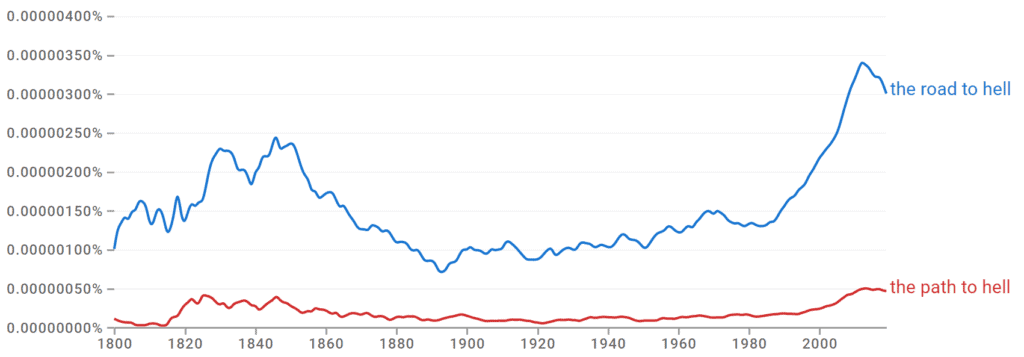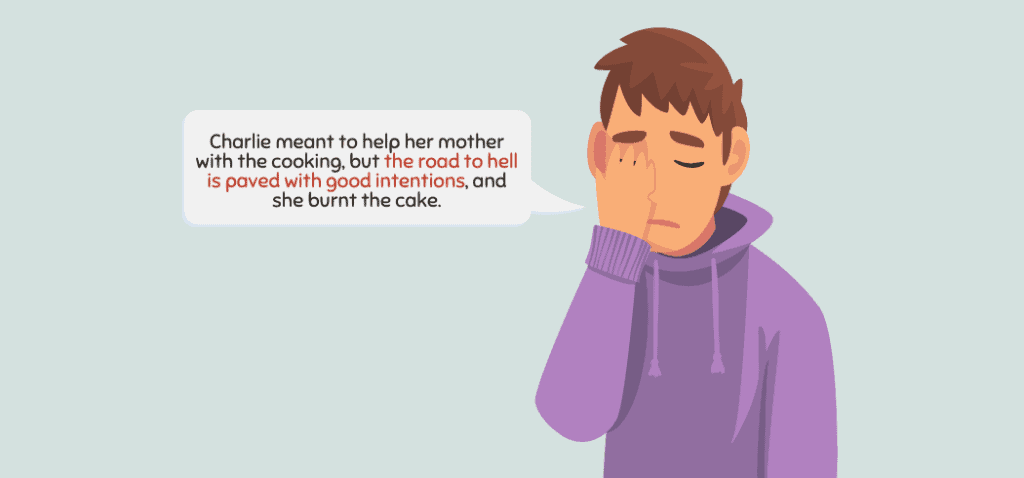Let’s unravel a linguistic puzzle as we delve into the proverb the road to hell is paved with good intentions. We often associate good intentions with positive outcomes, so why on earth would they pave a road to Hell? And what is the full quote? Well, that’s precisely what I’m here to explain, so sit tight and get ready to navigate this curious expression.
What Is “The Road to Hell Is Paved with Good Intentions” Full Quote?

If you’re waiting for a longer, more elaborate version of this phrase, I hate to break it to you—the full quote is exactly as you see it: The road to hell is paved with good intentions. No hidden verses, no secret addendum, and certainly no hidden trapdoors. The phrase is pretty straightforward and conveys a clear, albeit grim, picture.
Meaning Behind “The Road to Hell Is Paved with Good Intentions”
The proverb the road to hell is paved with good intentions is a rather somber prompt that good intentions are just not enough and can sometimes lead to negative outcomes because they weren’t acted on or followed through with.
Essentially, it implies that some people may have noble intentions but fail to act upon them, leading to unfavorable results, or their good intentions might have unexpected, bad outcomes.
So, if you’re planning to help a friend with a DIY haircut and end up giving them an unexpected mullet, you’ve just had a taste of this proverb.
Is “The Path to Hell Is Paved with Good Intentions” Correct to Use?

Don’t worry! The path to hell is paved with good intentions is a variant of the original phrase and is perfectly fine to use. Both carry the same intent, and you can use them interchangeably for preference or the rhythm of the sentence you’re constructing.
Origin and Etymology of “The Road to Hell Is Paved with Good Intentions”
While the exact origin of the phrase isn’t certain, it has been around for quite some time.
An earlier version of this saying, hell is full of good meanings and wishings, can be traced back to a 1640 theological book by Saint Bernard of Clairvaux, who originally wrote the saying hundreds of years prior. The attribution was printed in 1980 in Correspondence: Lettres d’Amitié Spirituelle by St Francis de Sales.
l’enfer est plein de bonnes volontés ou désirs. Translation: Hell is full of good meanings and wishes. There’s no mention of a paved road here because we didn’t have paved roads until later.
Other Ways to Say It
Here are a few different ways to convey this well-known proverb with synonyms.
- Good intentions, bad outcomes
- Actions speak louder than intentions
- Intentions don’t always lead to proper action
- Good plans often go awry
“The Road to Hell Is Paved with Good Intentions” Examples in a Sentence

- They started the project enthusiastically, but as they say, the road to hell is paved with good intentions, and the project was left unfinished.
- Charlie meant to help her mother with the cooking, but the road to hell is paved with good intentions, and she burnt the cake.
- The Canadian government’s new policy was intended to reduce poverty, but the road to hell was paved with good intentions, and it ended up causing more harm than good after a few months.
- Jack’s plan to surprise his girlfriend by painting her apartment seemed like a good idea, but the road to hell is apparently paved with good intentions—he spilled paint all over her antique furniture.
Concluding Thoughts
It seems the road to hell is paved with good intentions is an idiomatic expression that serves as a gentle reminder that action is the crucial element that gives life to our intentions. Without concrete steps to implement them, the best of intentions might just lead us down an undesirable path with unintended consequences, or in this case, pave a road straight to a metaphorical hell.
Enjoyed reading about this proverb? Check out some others we covered:
